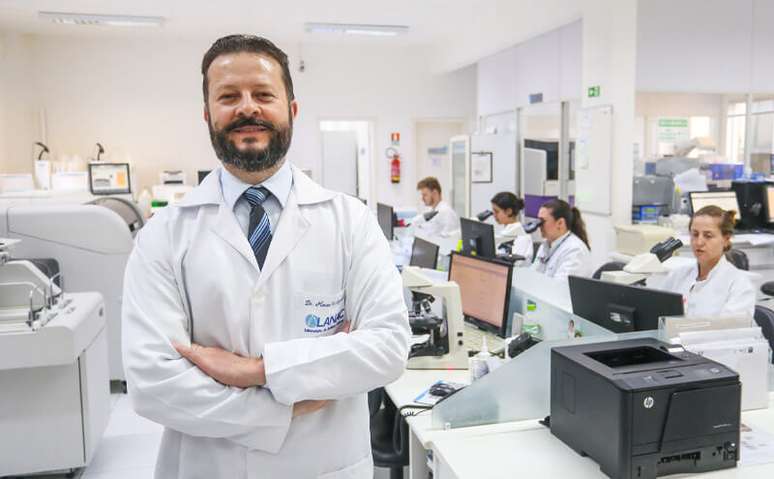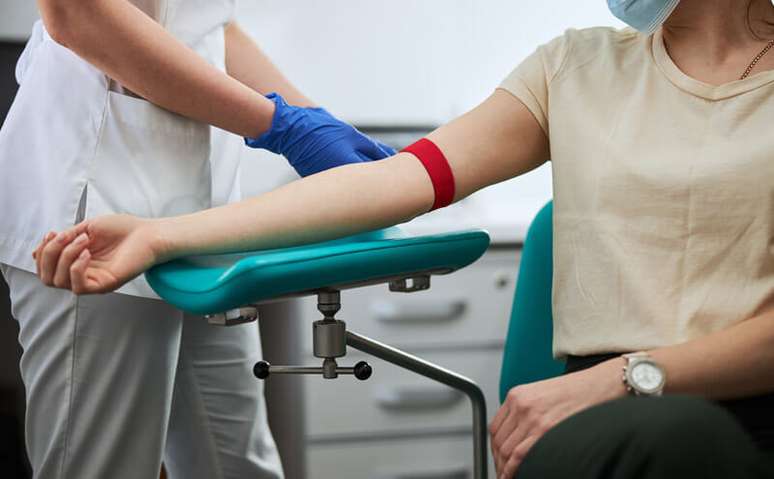Innovations in blood collection eliminate the need to abstain from food for some tests. see which ones
Blood analysis is one of the most important tests to be performed in the investigation of disease, as this bodily fluid participates in virtually all vital functions of our body, such as tissue activity, oxygen and carbon dioxide distribution, activity of the kidneys, hormones, conduction of infection-fighting cells, etc.
Being one of the most important exams, you need to follow some rules for the evaluation parameters to work properly. Among these rules, the main one is fasting, which nowadays is no longer necessary in some specific exams.
Bacteriology specialist and technical director of the Clinical Analysis Laboratory (Lanac), Marcos Kozlowski, explains that nowadays, with technological advances and new studies, some blood tests no longer require fasting, which can even compensate some results when performed without a doctor’s advice.
“It is important for the patient to know that not all blood tests require periods of food abstinence. Some indicate a special diet, but it all depends on the purpose of the examination. The blood count, for example, which is the test most requested by doctors, does not require fasting, as does the cholesterol test, which previously required a 12-hour fast and is now done without this indication”, he explains.
And how is the cholesterol test?
As for the cholesterol test, Marcos says that the change came about because it was realized that cholesterol dosages can be interpreted independently of the previous fast, furthermore technological evolution today allows this analysis to be done in an assertive and less dependent way from sample variations.
“Not requesting fasting helps a lot the frequency of examinations by the patient, who is often anxious about going long hours without eating. However some tests still require this practice, such as blood sugar, which today has a fast that can vary from 8h to 12h, and triglycerides, which can require from 12h to 14h of fasting, depending on the doctor’s advice”, says the director.

Another little-known rule is that children as young as six do not have to fast for any tests, and collection is done as close to their next meal as possible.
“In younger children, a short fast, up to about four hours, may be necessary. The rules will depend on what the pediatrician asks, who in some cases may require abstinence from some type of specific food,” explains Marcos.
Physiological changes and fasting
Marcos explains that our body works with the glucose reserves that we acquire in food, when they are depleted our body quickly begins to use other sources of energy, such as proteins and fats, so that the body remains active.
“The longer the fast, the greater the burning of fat and protein, so when we have tests related to the metabolism of elements such as glucose and fat, it is necessary to respect the fasting period, as this is the reference value used to measure these elements. Exams that do not have this measurement do not require fasting and can also be done at any time of the day”, says the director.
Another attention that should be paid concerns the consumption of tobacco and alcoholic beverages, since some tests require abstinence from these substances for a specific time. “Alcohol can interfere with diagnosing some problems, as it is a substance that stays in our bodies for a few days. Therefore, tests such as triglycerides and glucose, depending on the purpose, may require abstinence for up to three days,” says Marcos.
Which exams do not require fasting?
Among the more common tests that do not require fasting are:
- • Blood count
- • Blood group
- • Beta HCG (pregnancy test)
- • platelets
- • PSA (prostate specific antigen)
- • Hepatitis (all types)
- • T3, T4 and TSH (tests to evaluate thyroid function)
- • Serologies for rubella and toxoplasmosis
- • Urea
- • Creatinine
- • Magnesium
- • Soccer
- • Potassium
- • Sodium
- • Progesterone
- • Bilirubin
- • Anti-HIV
HOMEWORK inspires transformation in the world of work, in business, in society. It is creation ofCOMPASS
content and connection agency.
Source: Terra
Rose James is a Gossipify movie and series reviewer known for her in-depth analysis and unique perspective on the latest releases. With a background in film studies, she provides engaging and informative reviews, and keeps readers up to date with industry trends and emerging talents.






